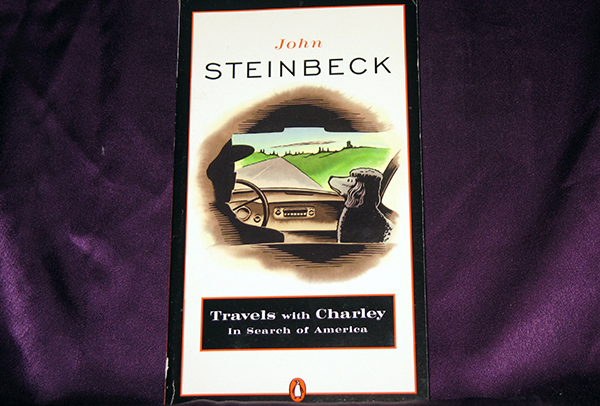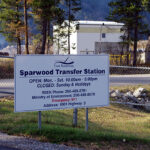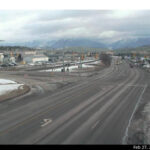Home »

A literary journey of discovery
Book Review
By Derryll White
 Steinbeck, John (1962). Travels with Charley – In Search of America.
Steinbeck, John (1962). Travels with Charley – In Search of America.
You might say, “Why would I want to read this book? It’s old!” And it is, but it is as meaningful today as it was in 1962, perhaps more so.
Steinbeck is the writer who gave the world that wonderful opus of despair and change arising from the Great Depression – ‘Grapes of Wrath.’ Most would agree that John Steinbeck knew America. What ‘Travels with Charley’ looks at is the fact that Steinbeck also knows himself, knows from where writers draw their source, their inspiration.
The fact is that, those of us who survive, we grow older and become conditioned by our life. We become removed from the lusts and powers of our youth, from our drive to experience the world and see it differently. That is what this book is about for me – discovery, in the same sense as Kerouac’s ‘On the Road’ or Mallory’s ‘Le Morte d’Arthur’ – questing in a very personal sense.
‘Travels with Charley’ does not have the grand sweep of events that some of Steinbeck’s other novels possess, but it should not be dismissed or pushed aside. He looks closely at an America that we don’t particularly see any more. He catches it in transformation from a rural heartland to the ageing megalopolis it now is. He is looking closely at a land that he loves, just before it jumps into Vietnam and gross consumerism. His predictions seem old hat to us 50 years later, but they were prescient as he was writing.
Best of all, this book is about what has become increasingly important and tantalizing to me – memory. The world changes and we either change with it or stand outside of it. In my youth we took as a surety the statement, “Don’t trust anyone over 30.” Now I am double that and sometimes don’t even trust myself, particularly when it comes to recall. The class I would have graduated in puts out a remarkable newsletter, and I remember almost none of it. My world was perhaps harsher, filled with work and violence, and like Steinbeck or Thomas Wolfe before him, I can’t go home again.
I am so thankful to John Steinbeck for continuing to bring me back to meaningful reflection. When my partner was sick, with death approaching, she asked me to read Steinbeck to her. She said he was clear, understandable beyond the brain cancer. Such huge gifts we are given if we keep ourselves open to them. Try ‘Travels with Charley.’
Excerpts from the novel:
TELEVISION – I who love words and the endless possibility of words am saddened by this inevitability. For with local accent will disappear local tempo. The idioms, the figures of speech that make language rich and full of the poetry of place and time must go. And in their place will be a national speech, wrapped and packaged, standard and tasteless.
MEMORY – The place of my origin had changed, and having gone away I had not changed with it. In my memory it stood as it once did and its outward appearance confused and angered me.
MOBILE HOMES – If a plant or a factory closes down, you’re not trapped with property you can’t sell. Suppose the husband has a job and is buying a house and there’s a layoff. The value goes out of his house. But if he has a mobile home he rents a trucking service and moves on and he hasn’t lost anything. He may never have to do it, but the fact that he can is a comfort to him.
SELF-KNOWLEDGE – So it was that I determined to look again, to try to rediscover this monster land. Otherwise, in writing, I could not tell the small diagnostic truths which are the foundation of the larger truth.
AGING – A kind of second childhood falls on so many men. They trade their violence for the promise of a small increase of life span…. I did not want to surrender fierceness for a small gain in yardage.
PLANNING – For weeks I had studied maps, large-scale and small, but maps are not reality at all – they can be tyrants. I know people who are so immersed in road maps that they never see the Countryside they pass through, and others who, having traced a route, are held to it as though held by flanged wheels to rails.
CITIES – American cities are like badger holes, ringed with trash – all of them – surrounded by piles of wrecked and rusting automobiles, and almost smothered with rubbish. Everything we use comes in boxes, cartons, bins, the so-called packaging we love so much.
HISTORY – What I set down here is true until someone else passes that way and rearranges the world in his own style. In literary criticism the critic has no choice but to make over the victim of his attention into something the size and shape of himself.
 – Derryll White once wrote books but now chooses to read and write about them. When not reading he writes history for the web at www.basininstitute.org.
– Derryll White once wrote books but now chooses to read and write about them. When not reading he writes history for the web at www.basininstitute.org.







